Former Afghan Official Reportedly Detained In Iran For Recruiting Fighters
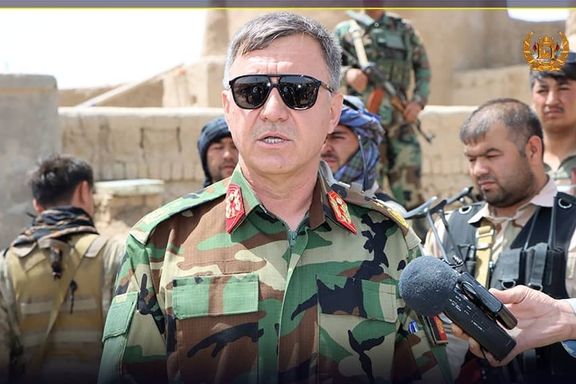
A website close to Iran’s intelligence circles has confirmed reports that security forces arrested a former Afghan official on charges of recruiting fighters for Ukraine.

A website close to Iran’s intelligence circles has confirmed reports that security forces arrested a former Afghan official on charges of recruiting fighters for Ukraine.
In an article published on Sunday, Mashregh News confirmed a report that Mohammad Hashim Raees, the former governor of Afghanistan’s Jowzjan province, was arrested on March 19 during a trip to Iran following a meeting with some Afghan refugees.
Mashregh News said Raees was a close friend of Abdul Rashid Dostum, a former Marshal in the Afghan National Army who was an enemy of Taliban and was recruiting Afghans in Iran without giving any details about the recruitment.
However, the Persian website of the Independent had quoted an unnamed source that Raees was arrested in Tehran because he wanted to recruit fighters among Afghans residing in Iran and send them to Ukraine as a unit to fight against the Russians.
The report claimed that Iranian security forces also confiscated more than $300,000 from Raees, noting that it was not clear whether this money was his personal funds or was intended to be used for other purposes.
According to the Independent, Raees promised the Afghan expatriates that they would receive Ukrainian citizenship at the end of the war, along with a handsome amount of money.
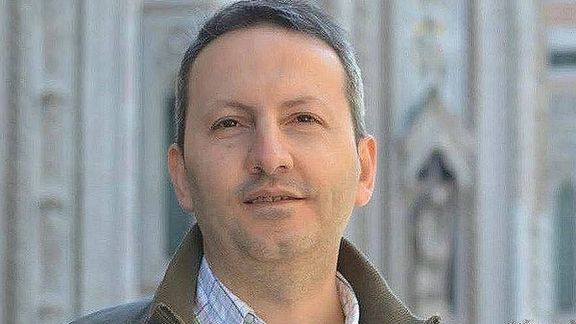
A Swedish-Iranian scientist sentenced to death in Iran has reportedly been assaulted by prison officials in Tehran, a human rights group reported Saturday.
Amhmadreza Djalali (Jalali) traveled to Iran in 2016 on the invitation of Tehran University and was arrested by security forces on accusations of espionage for Israel and later sentenced to death. He is one of several dual nationals held on trumped-up charges who are used as bargaining chips against Western countries.
Two British dual nationals were released in March in exchange for the payment of more than $500 million owed to Iran by the United Kingdom. Others in the past were released for money or in exchange with Iranian agents jailed abroad.
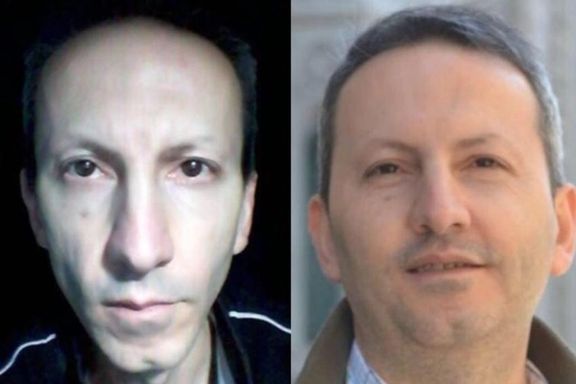
Iran Human Rights Organization based abroad, said information received from political inmates in Tehran’s Evin prison, indicated that Djalali realized infirmary personnel had “stolen” his medications and went to enquire. The prison officials assaulted him on April 4 and he received wounds in the incident.
Djalali, who is not allowed to communicate with his family or friends, suffers from several illnesses and his physical condition has deteriorated after years of mistreatment in jail.
There were reports last year that the Islamic Republic was interested to exchange Djalali with Hamid Nouri, a former Iranian prosecutor who is on trial in Sweden for taking part in mass killings of prisoners in 1988.
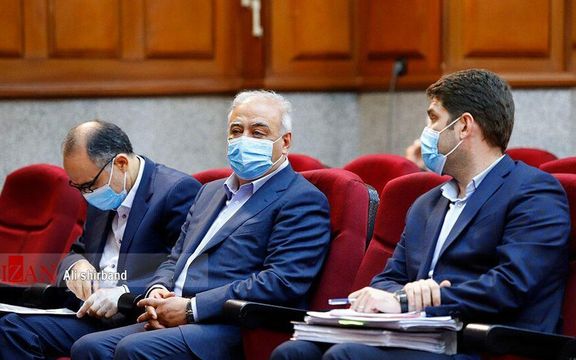
Iran's president quickly took credit for state banks publishing names of major debtors, while critics say the list is not new and the move is a publicity stunt.
Four state-owned banks including Bank-e Melli, Iran's largest bank, published the list of their major debtors on Saturday, six months after the ministry of economy ordered them to publish quarterly lists of major debtors.
The ministry of economy defines a 'major debtor' as persons or entities that hold loans worth at least 10% of the bank's total resources but have not paid instalments for loans estimated to total around $10 billion in today’s exchange rate, but much more in US dollars when the loans were received.
"At first glance this can be interpreted as an important and positive step in battling corruption and recovering the money owed to state banks," Eghtesad Online (Economy Online) wrote Sunday, but it added that the lists are extremely vague and do not offer any details.
The lists show no information other than names of individuals and companies. It is very hard to trace the background of these individuals or the ownership of the companies, that appear to be subsidiaries or front companies set up by unknown firms, some connected with state enterprises with well-connected managers.
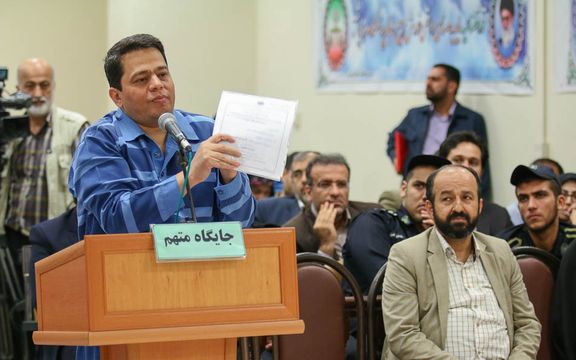
"None of the lists include information on the time the loans were granted to persons and entities that have a long record of getting loans and not paying back. It's also not clear if the banks decided on their own to grant the loans or were ordered [by other entities]. The information also does not reveal what the collateral for the loans were," Eghtesad Online wrote.
The publication also said it is equally important to know who endorsed the loans and bring them to account. It also said the purpose of publishing the lists is meant to enable the government to convince people that President Ebrahim Raisi is delivering on his election promises of fighting corruption and establishing transparency.
Officials say the move is proof that Raisi is delivering on his election promise of fighting corruption in the banking system. "One more of the President's promises was implemented. Melli Bank, the largest bank in the country, published the names of its major creditors," Government Spokesman Ali Bahadori-Jahromi said in a tweet Saturday.
Others such as Malek Shariati, a Tehran lawmaker in the parliament, say the publication of names of major creditors is proof that the administration and parliament are steadfast in establishing transparency and battling corruption.
Based on the budget bill, the government was mandated with publishing all information on major creditors on the central bank’s.
In 2017, outspoken reformist lawmaker Mahmoud Sadeghi published a list of major debtors of Sarmayeh Bank who has defaulted. In some cases, he said, the collaterals for the loans had been evaluated at a much higher price than their real worth.
Sadeghi called the phenomenon widespread in Iran 'crony capitalism', meaning those who have connections with centers of power could easily get loans that others find extremely difficult to secure. Many of the debtors had received low-interest, subsidized loans from banks.
Major debtors to banks with bad credit have allegedly used the money to speculate in the housing, foreign currency and gold markets rather than invest in production and have thus contributed to higher inflation.
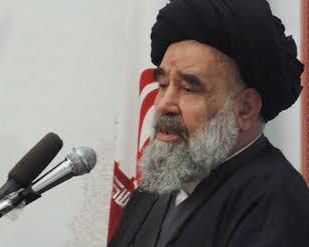
A report has revealed a money laundering network in Pakistan transferred huge amounts of illicit funds to Iran, with Supreme Leader’s representative as one of the recipients.
Saudi website Arab News said in a report on Saturday that court documents recently submitted by Pakistani federal investigators show that members of the network operated between Pakistan, Iran and Iraq over the past seven years.
According to Pakistan’s Federal Investigation Agency, the group Shiite used pilgrims traveling to the cities of Najaf in Iraq and Qom in Iran to smuggle money, as well as hawala and hundi -- two informal ways of transferring cash across borders, which are illegal in Pakistan.
One of the people who received money from the main suspect in the case, identified as Ali Raza, was Abolfazl Bahauddini, Ali Khamenei’s former representative in Pakistan.
Raza was among 13 people arrested by police in Karachi in December 2020 and January 2021 on charges of money laundering and being “associated with a foreign intelligence agency”. They were members of an Iran-backed militant group, the Zainabiyoun Brigade, which is believed to have sent young members of the Pakistani Shiite community to fight in Syria.
The charges said Raza was giving an amount of $200,000 monthly to Bahauddini through his representative Syed Wisal Haider Naqvi -- a government official, but it did not specify for how long Bahauddini had received the monthly payments.

The Israeli military has dismissed claims by Iranian media that IDF Chief of Staff Aviv Kochavi had admitted to the failure of security forces in dealing with the recent Tel Aviv terror attacks.
Iran’s official news agency IRNA claimed on Saturday that following the Tel Aviv shooting, Kochavi said the security forces could not control the situation and the perpetrator managed to escape easily.
The spokesman of the IDF, Brigadier General Ran Kochav, told Iran International on Saturday that the Israeli Defense Forces held a meeting to discuss the country's current security situation amid the rise of attacks on civilians on Friday but Kochavi didn’t talk about any failure of the security apparatus.
IRNA cited a report by al-Manar TV – the official media of Iran-backed Hezbollah Lebanese group – as its source.
However, the assailant of the shooting on Dizengoff street, identified as 28-year-old Ra’ad Fathi Hazem from the Jenin refugee camp, was killed by security forces a few hours later, something Iranian media affiliated with the Revolutionary Guard (IRGC) described as martyrdom.
The shooting spree that killed three Israelis and injured at least 10 others this week in Dizengoff street was the latest in a wave that has claimed the lives of 13 people so far.
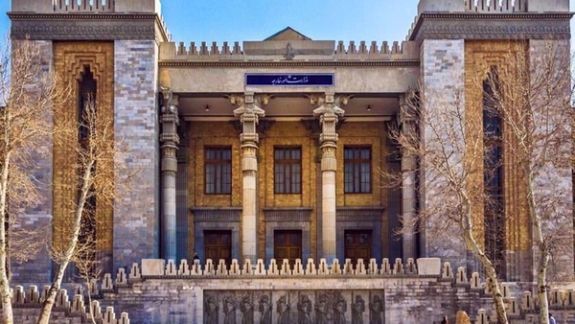
Iran on Saturday imposed sanctions on 24 more Americans in a largely symbolic move, as months of talks to revive a 2015 nuclear deal have stalled.
Among those sanctioned are former Army Chief of Staff George Casey and former President Donald Trump's attorney Rudy Giuliani.
Almost all the people named were officials who served during Trump's administration, which imposed sanctions on Iranian officials, politicians and companies and withdrew the United States from Iran's nuclear agreement with world powers.
In a statement carried by local media, the Iranian Foreign Ministry accused the sanctioned Americans - who also included several business figures and politicians - of supporting "terrorist groups and terrorist acts" against Iran, and Israel's "repressive acts" in the region and against Palestinians.
Eleven months of indirect talks between Iran and the United States in Vienna on salvaging the 2015 deal have stalled as both sides say political decisions are required by Tehran and Washington to settle the remaining issues.
Gen. Austin Scott Miller, former commander of US forces in Afghanistan, former Commerce Secretary Wilbur Ross, and several former ambassadors are among the officials targeted by the new Iranian sanctions.
In a similar move announced in January, Iran imposed sanctions on 51 Americans, many of them from the U.S. military, over the 2020 killing of General Qassem Soleimani in a drone strike in Iraq.
Last year, it imposed sanctions on Trump and several senior US officials.